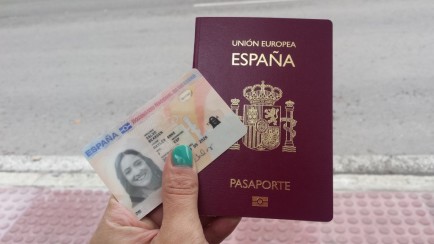
Spanish citizenship is typically granted to people who have lived in Spain for at least ten years.
The number of foreigners applying for Spanish citizenship rose in 2016 by 32% against 2015 – an upturn largely thought to be related to the nation’s improved economy.
While no EU nations featured in the top 11 of nationalities seeking Spanish citizenship – chiefly because EU nationals do not need any special paperwork or visas to work and live in Spain freely – that situation is likely to change in 2019 once the UK exits the EU…
However, for now the most prominent appliers for citizenship in Spain are Moroccans, Bolivians, Ecuadorians and Colombians.
These statistics will come as little surprise to anybody who knows Spain. Linguistic and historical ties with many South American nations are strong, with most towns and cities in Andalucía home to large populations of Latin Americans.
Last year, some 15,802 Bolivians acquired Spanish citizenship, with 15,255 Ecuadorians and 14,299 Colombians doing likewise.
These figures pale into comparison against the number of Moroccans who were granted Spanish citizenship, with more than 37,000 Moroccans taking ownership of a Spanish Pasaporte last year.
Morocco and Spain share a long, often painful, history, and while the countries are today vastly different they do share many geographical, architectural and cultural similarities.
Given that Spain is in the EU and Morocco in Northern Africa, the direction of travel is almost entirely one-way, and the pace waxes and wanes in relation to how Spain’s economy is performing. In the past two years, Spain has been one of Europe’s better economies, and such stability acts as a carrot for people seeking employment opportunities in the country.
Other nationalities filling out the top 11 for 2016 citizenship applications include the Dominican Republic, Cuba, Argentina, Brazil, Paraguay and – curiously in 11th place – Pakistan, with 3,148 Pakistanis granted a passport in 2016.
The official government data showed that, of the 117,994 successful applicants, 78% had been resident in Spain for more than 10 years continuously. Hence, the figures do not represent annual growth in Spain’ immigration because most of those now in receipt of a passport had already been living in Spain for a decade.
The most popular regions were Catalonia (33,857 applicants) and Madrid (28,559). As per a percentage of the population, Andalucía – at 2.4% – has the smallest proportion of non-Spanish citizens, compared to Basque Country with 7%.
To become a Spanish citizen an applicant typically has to have lived in Spain for at least 10 years, be able to complete a sociocultural knowledge test in Spanish and for applicants not native to a former Spanish colony pass a further written, spoken and reading test at A2-level Spanish.
 en
en



 Vlaams-Nederlands
Vlaams-Nederlands
0 Comments
Leave a Comment
DISCLAIMER
The opinions and comments expressed by contributors to this Blog are theirs alone and do not necessarily reflect the views of VIVA Homes Under the Sun Ltd, any of its associated companies, or employees; nor is VIVA to be held responsible or accountable for the accuracy of any of the information supplied.
Have you got something to say?